
Confronting Reality:
Climate Goals and Decarbonization
Speakers and Panelists
Barbara Buckinx | Armond Cohen | Navroz Dubash | Ekaterina Gratcheva | Chris Greig | Scott Hobart | Dale Jamieson | Jesse Jenkins | Sikina Jinnah | Anna Law | Laura Leonard | Iain McCulloch | Richard Moss | Wei Peng | Alan Robock | Terra Rogers | Cynthia Rosenzweig | Julie Rozenberg | Patrick Taylor Smith | Kurt Waltzer
Barbara Buckinx
Research Scholar, Liechtenstein Institute on Self-Determination (LISD), Princeton University

Barbara Buckinx is a research scholar with the Liechtenstein Institute on Self-Determination (LISD) at Princeton University’s School of Public and International Affairs. Her research on global governance investigates the problem of the unrestrained and potential exercise of power in global politics. In her work, she aims to reconcile the divide between normative political theory and policy research and give guidance to scholars as well as policymakers on what to allow, what to prohibit, and how to target reform in global governance. She also has research interests in migration, the environment, global health, and gender. She is co-chair of The Global Justice Network and a member of the Global Health Impact’s Pandemic Health Equity Working Group and the Normative Theory of Immigration Working Group. At LISD, she directs the Ethics of Policy Fellows Program, and she leads the projects on Global Governance, Environment and Migration, and Gender in the Global Community.
Armond Cohen
Executive Director, Clean Air Task Force

Armond Cohen is the executive director of Clean Air Task Force, a 135-person global environmental organization working to manage climate change by catalyzing the advancement of low-emissions energy and other climate-protecting solutions, which he has led since its formation in 1996. Cohen writes, speaks, and testifies frequently on energy systems and climate issues. He is a board member of the California Foundation on the Economy and the Environment, the founder of the Nuclear Innovation Alliance on whose board he sits, and a member of the advisory boards of Columbia University’s Center for Radiological Research and the Bank of America’s National Community Advisory Council. He is an honors graduate of Harvard Law School and Brown University, beginning his career as a clerk on the United States Court of Appeals, 7th Circuit. Cohen is a recipient of the Rose-Walters Prize, honoring his multi-decade career in environmental protection.
Navroz Dubash
Professor of Public and International Affairs and the High Meadows Environmental Institute, Princeton University
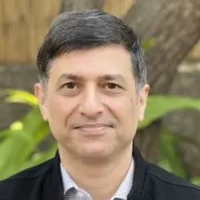
Navroz K. Dubash, a professor at Princeton University, specializes in climate governance to address the climate crisis and development goals. He has extensively written about national climate policy, international cooperation, energy transitions, and air quality, in which he emphasizes multidisciplinary approaches. Before Princeton, Dubash spent 15 years in India as a professor with the Centre for Policy Research and the co-founder of the Sustainable Futures Collaborative, and he continues to chair the organization’s advisory council. He is also co-Editor-in-Chief of Climate Policy and has authored two books. Dubash served on the Intergovernmental Panel on Climate Change (IPCC) and advised the Indian government on climate, energy, and environmental policies, including India’s Long-Term Low Emissions Development Strategy.
Ekaterina (Katya) Gratcheva
Advisor on Climate and Sustainable Finance, Monetary and Capital Markets Department, International Monetary Fund (IMF); Non-resident Fellow, Andlinger Center for Energy and the Environment and the Julis-Rabinowitz Center for Public Policy and Finance, Princeton University
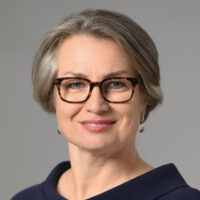
Ekaterina (Katya) Gratcheva is an advisor on sustainable and climate finance in the IMF’s Capital and Monetary Market department, focusing on the implementation of the IMF’s Resilience and Sustainability Trust to help low-income and vulnerable middle-income countries build resilience to external shocks and ensure sustainable growth. Gratcheva is also a non-resident fellow at two Princeton-affiliated centers, the Andlinger Center for Energy and the Environment and the Julis-Rabinowitz Center for Public Policy and Finance. In her prior roles, she led the finance function at Climate Investment Funds, which has mobilized over $70 billion for climate action in 72 developing and middle-income countries. Before that, she held several senior positions at the World Bank, in which she provided policy advice to central banks, sovereign wealth funds, and pension funds; facilitated long-term finance through capital markets; strengthened the role of financial institutions in development finance; and managed the World Bank’s assets and liabilities. She holds a master’s degree in public administration from the Harvard Kennedy School, a master’s degree in applied mathematics from Moscow State University, and a doctorate in Operations Research from George Washington University.
Chris Greig
Associate Director for External Partnerships; Theodora D. ’78 and William H. Walton III ’74 Senior Research Scientist at the Andlinger Center for Energy and the Environment, Princeton University

Chris Greig joined Princeton in 2020 following a successful two-year appointment as the Gerhard R. Andlinger Visiting Fellow in Energy and the Environment at the Andlinger Center. His research is interdisciplinary and deeply collaborative with industry, and focuses on overcoming the challenges to scale-up clean energy and fuels production, carbon capture and storage (CCS), industrial decarbonization, along with climate finance, and energy infrastructure delivery innovation. He co-led Princeton’s influential Net-Zero America study and is leading Princeton’s participation in collaborations on similar studies in Asia-Pacific countries. Prior to joining Princeton, Greig was director of the Dow Centre for Sustainable Engineering Innovation at The University of Queensland (UQ) in Australia and the founding director of the UQ Energy Initiative.
Prior to academia, Chris spent 3 decades in the private sector, as a successful company founder, senior executive and non-executive director, across 4 continents. His last industry roles were as CEO of ZeroGen, an early pioneer in large-scale carbon capture and storage (CCS) development, and Deputy Chairman of Gladstone Ports Corporation, one of Australia’s leading energy export hubs. He currently serves on the Sustainability External Advisory Council for the Dow Chemical Company. Greig has a Ph.D. in chemical engineering and is a fellow of the Australian Academy of Technology and Engineering.
Scott Hobart
Partner and Chief Investment Officer, Mercator Partners

Scott Hobart is the chief investment officer of Mercator Partners, an energy and technology focused asset manager based in Princeton, New Jersey. Mercator invests across public equity markets globally with a focus on identifying sectors and business models that support the urgent need to deliver growth in energy supply to support electrification and decarbonization of industry. The investment process at Mercator draws heavily on insights from academia and national laboratories. Prior to founding Mercator in 2018, Hobart spent 15 years in commodity markets trading in physical base metals, commodity futures and options and listed equities. Scott holds a CFA charter and commerce and arts degrees from the University of Melbourne.
Dale Jamieson
Director, Center for Environmental and Animal Protection; Professor Emeritus of Environmental Studies, Professor of Philosophy, and Affiliated Professor of Law, Medical Ethics, and Bioethics, New York University
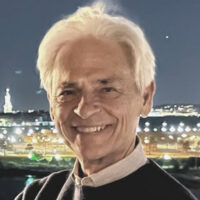
Dale Jamieson is a professor emeritus of environmental studies; affiliated professor of law, medical ethics, and bioethics; former professor of philosophy; and founding director of the Center for Environmental and Animal Protection at New York University. He has held visiting appointments at the National Center for Atmospheric Research, Cornell University, Princeton University, Stanford University, University of Oregon, Arizona State University, University of California at Santa Barbara and San Diego, King’s College London, Monash University, and the University of the Sunshine Coast in Australia. Last year, Cambridge University Press published a new edition of his book, Ethics and the Environment: An Introduction, and next year Oxford University Press will publish a new edition of his 2014 book, Reason in a Dark Time: Why the Struggle to Stop Climate Change Failed–and What It Means For Our Future. Jamieson’s 1996 paper, “Ethics and Intentional Climate Change,” was the first academic exploration of the ethics of geoengineering.
Jesse Jenkins
Associate Professor of Mechanical and Aerospace Engineering and the Andlinger Center for Energy and the Environment, Princeton University
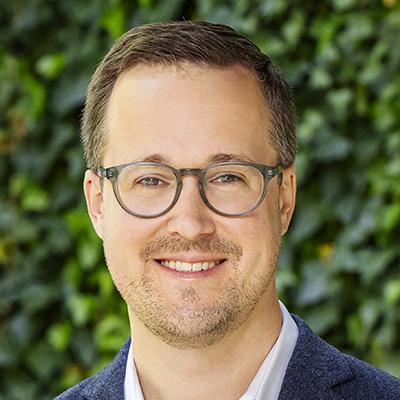
Jenkins is an associate professor and macro-scale energy systems engineer at Princeton University, with a joint appointment in the Department of Mechanical and Aerospace Engineering and the Andlinger Center for Energy and Environment. He leads the Princeton ZERO Lab (Zero-carbon Energy systems Research and Optimization Laboratory), which focuses on improving and applying optimization-based energy systems models to evaluate and optimize low-carbon energy technologies, guide investment and research in innovative energy technologies, and generate insights to improve energy and climate policy and planning decisions. Jenkins earned a Ph.D. and M.S. from the Massachusetts Institute of Technology, worked previously as a postdoctoral fellow at the Harvard Kennedy School, and spent six years as an energy and climate policy analyst. Jenkins recently served on the National Academies of Science Engineering and Medicine expert committee on Accelerating Decarbonization of the U.S. Energy System, was a principal investigator and lead author of Princeton’s landmark Net-Zero America study, and leads the REPEAT Project, which provides regular, timely, and independent environmental and economic evaluation of federal energy and climate policies as they are proposed and enacted. Jenkins has delivered invited testimony to multiple Congressional committees and his research is regularly featured in major media outlets. He routinely provides technical analysis and policy advice for non-profit organizations, policymakers, investors, and early-stage technology ventures working to accelerate the deployment of clean energy, and he was named to the 2024 TIME100 Next list as a rising leader working to shape a better future for the planet.
Sikina Jinnah
Associate Director, Center for Reimagining Leadership (CRL); Director, CRL Climate Justice Scholars Program; Professor of Environmental Studies, University of California, Santa Cruz

Sikina Jinnah is a professor of environmental studies, associate director of the Center for Reimagining Leadership (CRL) at the University of California at Santa Cruz, and director of CRL’s Climate Justice Scholars Program. Her research focuses on global environmental governance in the areas of climate change, climate engineering, and the nexus between international trade and environmental politics. She is the author or editor of seven books and over 50 articles and book chapters. Her first book, Post-treaty Politics (MIT Press), received the 2016 Harold and Margaret Sprout Award for best book in international environmental affairs from the International Studies Association. Her 2020 book, Greening through Trade: How US Trade Policy Influences Environmental Protection Abroad, was one of three finalists for the Canadian Political Science Association’s prize for best book in international affairs. She is an Andrew Carnegie Fellow, serves on the editorial committee for UC Press, and was a member of the U.S. National Academies of Science, Engineering, and Medicine Committee on Atmospheric Methane Removal.
Anna Law
Strategic Partnerships Officer, Multilateral and Programme Country Partnerships Division, Partnerships and Innovation Department, United Nations World Food Programme

Anna Law works for the World Food Programme (WFP) in Washington D.C., advancing WFP’s partnership with the World Bank and International Monetary Fund. She previously worked in WFP’s Niger, Afghanistan, Pakistan, and Senegal country offices, as well as in the organization’s headquarters in Rome and in the regional bureau for Asia in Bangkok. Her work focuses on climate adaptation for food security, food security analysis, and humanitarian cash assistance programs. She holds a bachelor’s degree in environmental policy from Columbia University and a master’s degree in environmental change and management from Oxford University.
Laura Leonard
Group President, Technology Solutions, Worley

Laura Leonard is the Group President for Technology Solutions at Worley. She is responsible for Worley’s technology businesses, Chemetics® and Comprimo®, Worley Technology Ventures, and the expansion of the company’s technology offerings. Leonard is a seasoned leader with more than 20 years of experience in energy and petrochemicals technologies. She has a track record of translating innovative ideas into executable engineering solutions for customers. Leonard began her career in research and development and progressed through various business leadership roles. Most recently, Leonard served as the vice president and general manager of UOP Process Technology for Honeywell UOP. Leonard holds a bachelor’s degree in chemical engineering from the University of Wisconsin at Madison and is an author on 38 U.S. patents.
Iain McCulloch
Director, Andlinger Center for Energy and the Environment; Gerhard R. Andlinger Professor in Energy and the Environment; Professor of Electrical and Computer Engineering and the Andlinger Center for Energy and the Environment, Princeton University
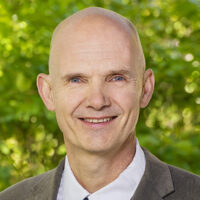
Iain McCulloch is the director of the Andlinger Center for Energy and the Environment, the Gerhard R. Andlinger Professor in Energy and the Environment, and a professor of electrical and computer engineering at Princeton University. He also holds a visiting professor position in the Department of Chemistry at the University of Oxford. He previously held joint appointments as Professor of Chemical Science and Director of KAUST Solar Center at KAUST, as well as a Chair in Polymer Materials in the Chemistry Department at Imperial College. Before joining academia, he spent 18 years managing industrial research groups at Hoechst in the United States and Merck in the United Kingdom. He is a Fellow of the Royal Society, the Royal Society of Chemistry, and the European Academy of Sciences, as well as a Member of Academia Europaea. He is the recipient of the 2022 Royal Society Armourers and Brasiers Prize, the 2020 Blaise Pascal Medal for Materials Science, the Royal Society of Chemistry 2020 Interdisciplinary Prize, the 2014 Tilden Medal for Advances in Chemistry, and the 2009 Creativity in Industry Prize. His interests are in the design and investigation of organic semiconducting materials.
Richard Moss
Non-resident Fellow, Andlinger Center for Energy and the Environment, Princeton University
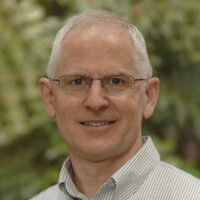
Richard H. Moss is a research scientist who focuses on improving society’s resilience and capacity for managing the risks of climate change. His research includes work on vulnerability and resilience, uncertainty characterization, and multisector dynamics. Moss is currently a non-resident fellow at the Andlinger Center for Energy and the Environment, and he recently retired from Pacific Northwest National Laboratory’s Joint Global Change Research Institute. Among other positions, he has also served as Director of the U.S. Global Change Research Program. He has chaired or been a member of a number of advisory boards, including the Federal Advisory Committee for the Sustained U.S. National Climate Assessment and the National Academy of Science, Engineering, and Medicine’s Board on Environmental Change and Society. Moss directed the programming behind the 2020 E-ffiliates Retreat, which focused on making infrastructure and communities resilient to storms and other extreme disruptions.
Wei Peng
Assistant Professor of Public and International Affairs and the Andlinger Center for Energy and the Environment, Princeton University
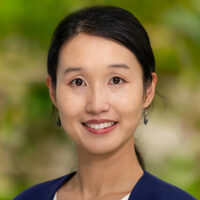
Wei Peng is an assistant professor at Princeton University, with a joint appointment between the School of Public and International Affairs and the Andlinger Center for Energy and the Environment. Peng’s research uses computational models to quantify difficult tradeoffs of climate policy across social, political, and environmental aspects. Her research has been published in Nature, Nature Climate Change, Nature Sustainability, and PNAS, among others, and her work has been featured in national and local media outlets such as PBS and NPR. Peng also served as a co-author of the Fifth National Climate Assessment. Peng’s group currently focus on two main projects. The first, Political Economy in Integrated Assessment Modeling (PE-IAM), incorporates political economy insights into energy system modeling to better represent social and political realities. The second, Health Effects of Deep Decarbonization (HEALED), identifies features of energy strategies that can yield robust health benefits given deep future uncertainties. Prior to joining Princeton, Peng was an assistant professor of international affairs and civil and environmental engineering at Penn State University. She received her Ph.D. in science, technology and environmental policy from Princeton University and her bachelor’s degree in environmental science from Peking University in China. She was also a Giorgio Ruffolo Post-Doctoral Fellow and a research associate at the Harvard Kennedy School.
Alan Robock
Distinguished Professor, Department of Environmental Sciences, Rutgers University
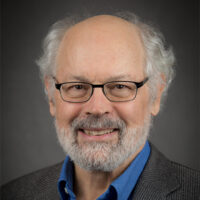
Alan Robock is a distinguished professor of climate science in the Department of Environmental Sciences at Rutgers University. He graduated with a bachelor’s degree in meteorology from the University of Wisconsin, Madison, as well as a master’s degree and Ph.D. — both in meteorology — from the Massachusetts Institute of Technology. Before graduate school, he served as a Peace Corps Volunteer in the Philippines. Prior to joining Rutgers in 1998, he was a professor at the University of Maryland from 1977-1997 and was the State Climatologist of Maryland from 1991-1997. Robock has published more than 500 articles, including more than 290 peer-reviewed papers. His areas of research include climate intervention (geoengineering) and the climatic effects of nuclear war and volcanic eruptions. He is the co-founder and co-leader of the Geoengineering Model Intercomparison Project (GeoMIP). He serves as Editor of Reviews of Geophysics, the most highly cited journal in the earth sciences. He is a Fellow of the American Geophysical Union, the American Meteorological Society (AMS), and the American Association for the Advancement of Science, as well as a recipient of the AMS Jule Charney Medal. Robock was a lead author of the Fifth Assessment Report of the Intergovernmental Panel on Climate Change (IPCC).
Terra Rogers
Program Director, Superhot Rock Geothermal, Clean Air Task Force

Terra Rogers is the program director for Superhot Rock Geothermal at Clean Air Task Force (CATF). In 2022, she joined CATF to create a global vision for Superhot Rock and implement pathways for large-scale deployment. Rogers has been active in the renewable energy industry for 20 years, supporting companies providing pioneering R&D solutions in the geothermal, biofuel, and energy storage markets. Rogers holds a bachelor’s degree in chemical engineering from the Colorado School of Mines and a master’s degree in business administration from Harvard Business School.
Cynthia Rosenzweig
Co-founder, AgMIP; Adjunct Senior Research Scientist, Center for Climate Systems Research, Columbia University
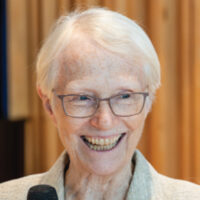
Cynthia Rosenzweig is an adjunct senior research scientist at Columbia University Climate School’s Center for Climate Systems Research. Rosenzweig’s area of expertise is climate change and food systems. Rosenzweig is the co-founder and member of the Executive Committee of the Agricultural Model Intercomparison and Improvement Project (AgMIP), a globally integrated, transdisciplinary study of climate change and the food system at regional, national and global scales, including the participation of over 1,200 leading researchers from developed and developing nations. In 2019, Rosenzweig was coordinating lead author of the Food Security Chapter for the IPCC Special Report on Climate Change and Land. She is the 2022 recipient of the World Food Prize, which is considered as the “Nobel Prize for Food and Agriculture.”
Julie Rozenberg
Senior Economist, Office of the World Bank Regional Director for Sustainable Development in Eastern Europe and Central Asia, World Bank

Julie Rozenberg is a senior economist in the Office of the Regional Director for Sustainable Development in Eastern Europe and Central Asia at the World Bank. She focuses on the link between development policy and climate change adaptation and mitigation policies, working with countries to identify investments and policies for more sustainable, resilient, and inclusive growth trajectories. She currently leads new World Bank core diagnostics on development and climate change (CCDRs), as well as a report on adaptation finance in Europe and Central Asia. In previous positions, she led a regional report on adaptation and resilience in the Caribbean (360 degrees Resilience: A guide to Prepare the Caribbean to a New Generation of Shocks) and two major global reports on infrastructure (Beyond the Gap: How countries can afford the infrastructure they need while protecting the planet and Lifelines: The resilient infrastructure opportunity). Julie is the author of dozens of research papers, an editor for Wires Climate Change, and the Vice President of the Society for Decision Making Under Deep Uncertainty. She holds an engineering degree from ENSTA ParisTech and a Ph.D. in economics from EHESS in Paris.
Patrick Taylor Smith
Associate Principal, Principia Advisory; Adjunct Professor, Georgetown University
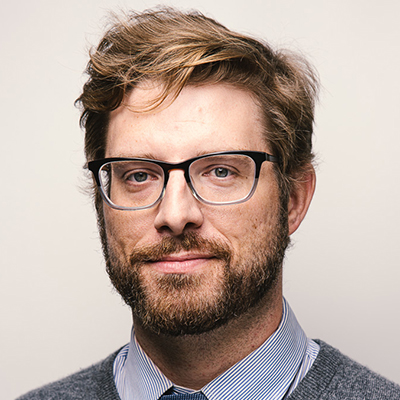
Patrick Taylor Smith is an associate principal at Principia Advisory and an adjunct professor at Georgetown University. Previously, Smith was a resident fellow at the Stockdale Center for Ethical Leadership at the United States Naval Academy. After earning his Ph.D. in philosophy from the University of Washington, he was a postdoctoral fellow at the McCoy Center for Ethics in Society at Stanford University before becoming an assistant professor at the National University of Singapore and the University of Twente in the Netherlands. His academic research concerns the intersection between political philosophy and emerging technologies, with a particular focus on the global governance of potentially disruptive technologies such as geoengineering and AI.
Kurt Waltzer
Senior Advisor, Clean Air Task Force; Principal, Energy Systems Innovation Consultancy
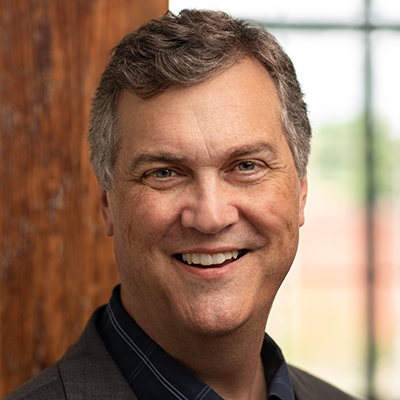
Kurt Waltzer is a senior advisor to the Clean Air Task Force (CATF) and the principal for Energy Systems Innovation Consultancy. His work is centered on engaging with civil society, market leaders, and policymakers to help develop systems-level solutions for the most challenging aspects of decarbonization. Previously, Waltzer was the managing director at CATF, where he focused on growing the organization from a U.S.-based NGO to a global climate organization, developing an integrated approach between technology advocacy and regional expertise, and expanding the organization’s programmatic focus to a wide range of decarbonization technology areas including zero-carbon fuels, superhot rock geothermal, and fusion. Waltzer has also been engaged for two decades in supporting the development of carbon capture and storage (CCS) technology, playing a leading role in developing the policy foundation and supportive network that led to the adoption of major CCS policies in the U.S., including the enhanced and expanded 45Q tax credit. He holds a master’s degree in business administration from the University of Michigan, as well as a bachelor’s degree in economics and biology from The Ohio State University.